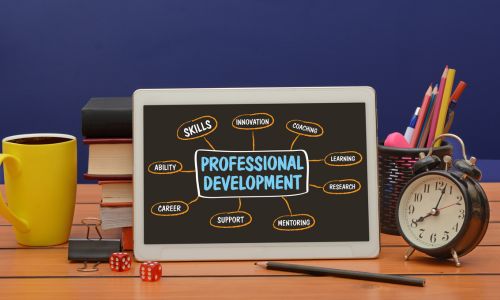In today’s fast-paced world, the landscape of many professions is evolving at an unprecedented rate. Adapting, growing, and staying ahead means recognizing that your professional learning doesn’t stop once you’ve received your degree or certification. Continuous Professional Development (CPD) for Career Growth is the proactive commitment to learning and development, ensuring that your skills and knowledge remain current and competitive.
What is Continuous Professional Development?
Defining CPD
Continuous Professional Development refers to the process of consistently enhancing and updating your professional skills, knowledge, and experience. This can be achieved through a combination of formal education, workshops, training, and self-directed learning.
The Difference Between CPD and Traditional Education
Unlike traditional education, which often follows a set curriculum and structure, CPD is more flexible and tailored to individual needs. Its aim is to ensure professionals grow and evolve in their careers, irrespective of how long they’ve been in the field.
Why is CPD Crucial for Professionals?
Staying Relevant in a Changing World
Industries evolve, and new methodologies, technologies, and best practices emerge. Engaging in CPD ensures you remain relevant, informed, and at the top of your game.
Enhancing Career Prospects
Professionals who invest in CPD are more likely to find better job opportunities, earn promotions, and be recognized as leaders in their domain.
Pro Tip: Highlight your CPD efforts on your resume and LinkedIn profile. It shows potential employers your commitment to growth.
Boosting Confidence and Credibility
With updated skills and knowledge, you not only perform better but also project more confidence in your professional interactions. This also bolsters your credibility among peers and clients.
How to Engage in Continuous Professional Development
Formal Courses and Workshops
These are structured learning opportunities provided by institutions or organizations, often leading to certifications or qualifications. Check out LinkedIn Learning or Coursera.
Networking and Conferences
Engaging with peers, industry experts, and thought leaders can provide invaluable insights and knowledge that you won’t find in textbooks.
Pro Tip: Don’t just attend conferences. Participate, ask questions, and engage in discussions to maximize your learning.
Self-Directed Learning
This involves taking the initiative to read books, articles, or online resources, or even experimenting with new tools and techniques on your own.
Feedback and Reflection
Solicit feedback from colleagues, mentors, or supervisors. Reflect on your experiences, successes, and failures to identify areas for growth.
In Conclusion
Continuous Professional Development (CPD) for Career Growth is no longer a luxury but a necessity for professionals aiming to thrive in their careers. By actively pursuing CPD, you not only enhance your skills and knowledge but also position yourself as a forward-thinking, proactive professional. Being accountable to this “extra work” can be tough, so you can consider a coach to help you progress towards goals.
Remember, the path to excellence is a continuous journey, not a final destination. Embrace the spirit of continuous learning, and you’ll find that both opportunities and success come knocking more frequently.





